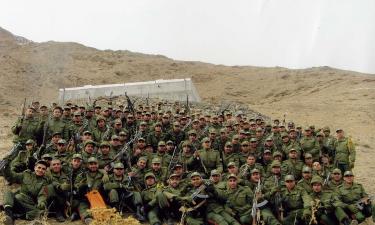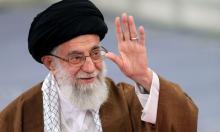Outcome - 3 March, 2003 - News
Serbian radical leader Vojislav Seselj was the last who “on his free will” left for the Hague
The International Tribunal in the Hague sentenced former Serb President in Bosnia, Biljana Plavsic to eleven years of imprisonment. Plavsic was found guilty of promoting ethnic cleansing on the Bosnian territory in 1992-1994. Hague tribunal prosecutor Carla del Ponte insisted that imprisonment for Plavsic must be from 15 to 25 years.
Former president of Bosnian Serbs voluntarily handed herself over to the Hague Tribunal and pleaded guilty “of crimes against humanity”, one of the charges brought against her. However, Biljana Plavsic, 72, disagreed with the strict sentence of the Tribunal and declared her intention to appeal against the unjust court decision. Besides, Plavsic’s attorneys asked the Hague judges to allow the accused to remain free until the appeal is considered.
However, this will hardly ever have any effect. “The political tribunal in the Hague”, as Serbs call it, has already clearly demonstrated which side it takes when the tragic events in Yugoslavia in the 1990s are considered. The tribunal is on the side of those who are now going to administer a “tribunal” of their own in Iraq.
At the same time, instances of “voluntarily surrenders” of Serbs to the Hague, that have become frequent recently, demonstrate that they openly “admit their guilt.” Even if we assume there is guilt indeed, it is all the same just a part of the guilt as compared with doings of Alija Izetbegovic or Franjo Tudjman against their opponents. Can you remember at least one high-ranking official or a military man among Bosnian Moslems and Croats who publicly repented for the bygone doings or on his free will left for the Hague tribunal (that was created against the international law) to prove the justice? General Janko Bobetko, whom prosecutors from the Hague finally decided to summon to the tribunal, has been restoring his health in a Croatian sanatorium for several months already; a personal letter written by Croatia Prime Minister Ivica Racan is a guarantee of the general’s immunity for the whole period of this “medical treatment”.
As for Serbs, was it actually free will of Serbian President Milan Milutinovic, who just recently quitted the post, to hand himself over to the tribunal? Was it Plavsic’s own decision to go to the tribunal? Was it on his own free will that leader of the Serb Radical party Vojislav Seselj bought a ticket to the Hague right the next day after his triumphant re-election leader of the Serb Radical party? Majority of the population considered Seselj the only alternative to pro-western politicians from the Serb Democratic Opposition. Former Yugoslav President Slobodan Milosevic also shared the opinion and asked all Serbian patriots, irrespective of their party belonging to vote for Seselj at the presidential elections. And the list of Serbian “volunteers” who left for the Hague can be continued.
It seems that moral and psychological pressure is growing too unbearable in Serbia. Seselj confessed the fact himself: “I don’t feel safe in Serbia.” His words sounded a sentence.
Unfortunately, forced extradition of Slobodan Milosevic in June of 2001, the measure organized by Serbian authorities against the background of increasing apathy of the population, became not only “a precedent.” Something broke down in people’s conscience when the man who embodied the whole of Serbia’s repulse to NATO military aggression was extradited. It was an enormous national humiliation when the Man was put in an ordinary prison lorry to be delivered to the airport and further to Carla del Ponte.
The extradition was something deeply symbolic and having some higher sacral meaning. Slobodan Milosevic was extradited on a day sacred for all Serbs, the national holiday of Vidovdan. On this day the whole of the country celebrates the historic battle with Turks on the field of Kosovo that took place in 1389, the battle that had as much importance for Serbs as Russia’s battle of the field of Kulikovo. There are just few people who remember Milosevic’s last words before he boarded the plane; he said: “Do you know today is the Day of Saint Vitus?”
In response to the words, Serbian Prime Minister Zoran Djindjic said in an interview to local TV: “Milosevic urged for realization of ideals of heavenly Serbia, but Serbian government pledged to realize ideals of the earthly one.”
Sergey Stefanov PRAVDA.Ru
Translated by Maria Gousseva
Read the original in Russian: https://www.pravda.ru/world/36062-tribunal/
Related links:
Subscribe to Pravda.Ru Telegram channel, Facebook, RSS!




